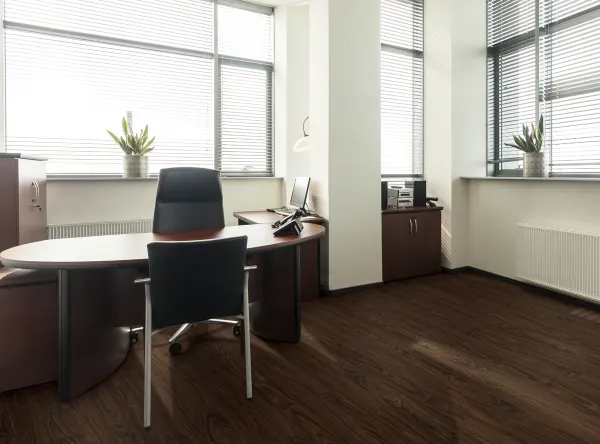
Waterproof Flooring: Understanding WPC and SPC
When it comes to waterproof flooring, two popular options stand out: wood plastic composite (WPC) and stone plastic composite (SPC). Both types offer excellent durability and water resistance, making them ideal for various areas in your home. Below, we’ll explore the differences between WPC and SPC, helping you understand which option is best suited for your needs.
What is WPC flooring?
WPC, or wood plastic composite, is a type of vinyl flooring that combines wood fibers with plastic polymers. This unique blend creates a highly durable and water-resistant material. WPC flooring typically features a multi-layer construction, including a wear layer, a printed vinyl layer, a rigid WPC core, and an underlayment. This construction provides excellent stability and comfort underfoot.
Benefits of WPC flooring
WPC flooring is known for its comfort and insulation properties. The wood component in WPC provides a warmer and softer feel compared to other rigid core options. This makes it an excellent choice for living areas and bedrooms. Additionally, WPC waterproof vinyl flooring is highly resilient, able to withstand heavy foot traffic, and resist dents and scratches. Its waterproof nature makes this floor suitable for kitchens, bathrooms, and basements, offering peace of mind in areas prone to moisture.
What is SPC flooring?
SPC, or stone plastic composite, is another type of waterproof vinyl flooring. It is made from a blend of limestone and plastic polymers, creating an extremely dense and rigid core. Like WPC, SPC waterproof flooring also consists of multiple layers, including a wear layer, a printed vinyl layer, a rigid SPC core, and an underlayment. The primary difference lies in the core composition, with SPC being more stone-based.
Benefits of SPC flooring
SPC flooring is renowned for its outstanding durability and resistance to impact. The stone-based core makes SPC flooring more rigid and less susceptible to expansion and contraction due to temperature changes. This makes it an excellent choice for areas with fluctuating temperatures or heavy loads, such as commercial spaces and high-traffic areas in the home. Additionally, SPC waterproof vinyl flooring offers superior water resistance, making this floor ideal for bathrooms, kitchens, and laundry rooms.
Key differences between WPC and SPC
While both WPC and SPC waterproof flooring offer excellent water resistance and durability, there are key differences to consider. WPC is generally softer and more comfortable underfoot, providing better sound insulation and warmth. It is ideal for residential spaces where comfort is a priority. On the other hand, SPC is more rigid and durable, making it suitable for high-traffic areas and commercial settings. Its superior resistance to temperature changes and impact makes it a more robust option for demanding environments.
Choosing the right waterproof floors for your needs
When selecting between WPC and SPC waterproof flooring, consider the specific requirements of your space. If you prioritize comfort and insulation, WPC might be the better choice. For areas with high traffic, heavy loads, or fluctuating temperatures, SPC offers enhanced durability and stability. Both options provide excellent water resistance, ensuring your floors remain pristine in moisture-prone areas.
Your experts on waterproof flooring in Norcross, GA
Understanding the differences between WPC and SPC waterproof flooring is crucial in making an informed decision for your home or business. Both types of waterproof vinyl flooring offer unique benefits, from comfort and insulation to durability and stability. By evaluating the specific needs of your space, you can choose the right flooring that combines functionality with aesthetic appeal, ensuring a long-lasting and beautiful floor.
JA Worldwide Design proudly offers a wide selection of waterproof floors. Our flooring store in Norcross, GA, serves Norcross, Chamblee, Duluth, Dunwoody, Atlanta, and Brookhaven, GA.
Tags: SPC, Waterproof Flooring, WPC
